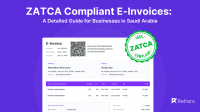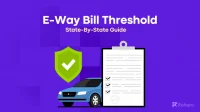In the event of not achieving the targeted loan sanction amount of Rs. 3 lakh crore, the government is likely to extend the deadline of 31st October for the Emergency Credit Line Guarantee Scheme (ECLGS) for MSMEs.
In place from May 23, as of now, the ECLGS is open for the period till October 31 or till Rs. 3 lakh crore has been sanctioned, whichever is earlier.
According to the data on The Indian Express, out of the targeted loan amount for MSMEs under ECLGS, the sanctions and the disbursements stand increased on October 5 from August 12:
| August 12, 2020 | October 5, 2020 | |
| Sanction Amount % | 47.7 | 62.52 |
| Disbursement amount % | 32.9 | 45.38 |
Responsible for implementing the ECLGS, the National Credit Guarantee Trustee Company Ltd (NCGTC) has adopted an aggressive marketing strategy for campaigns to achieve the aim of increased funding to MSMEs in the month of October.
A senior government official, in a statement, mentioned that “The NCGTC has increased its outreach substantially this month. The idea is to put the entire Rs 3 lakh crore to use so that liquidity can reach the maximum number of enterprises. Loan sanctions have picked up after individuals were allowed to take benefits. But even if we reach Rs 2.90 lakh crore of sanctions, then also there is a ground for extension of the scheme.”
The government data till October 5 reveals the following:
12 public sector banks, 24 private banks, and 31 non-banking financial companies (NBFCs) have sanctioned about Rs.1.87 Lakh crores out of which Rs.1.36 Lakh crores have been sanctioned to 23.37 Lakh borrowers.
In comparison to state-owned entities, the total loan amount sanctioned by private banks remains higher.
| Public sector banks | Private banks | |
| Sanction amount | Rs. 81,648 crore | Rs. 95,510 crore |
| Disbursement amount | Rs. 62,848 crore | Rs. 68,814 crore |
The data for the individual entrepreneurs is a sanctioned amount of Rs. 17,460 crore out of which Rs. 5,939 is disbursed to 1.64 lakh individual borrowers.
As per the National Institute of Bank Management’s survey, ECLGS has proved to be the most beneficial for micro-enterprises. The reason is not business growth but to suffice the lack of liquidity faced by micro-enterprises. Other areas of concern regarding the scheme are:
- Unequal disbursement patterns, i.e. large proportion of borrowers have received a small share of the total loan
- The low utilization rate for the smallest borrowers and manufacturing firms
Under the scheme, the central government provides additional 20% collateral-free credit to MSMEs against any loan losses. Banks are not required to take any collateral against the loans from the borrowers, however, a charge on security is allowed on the existing loans including the registration, documentation, and stamp duty charges.
Read more about this news here.

















